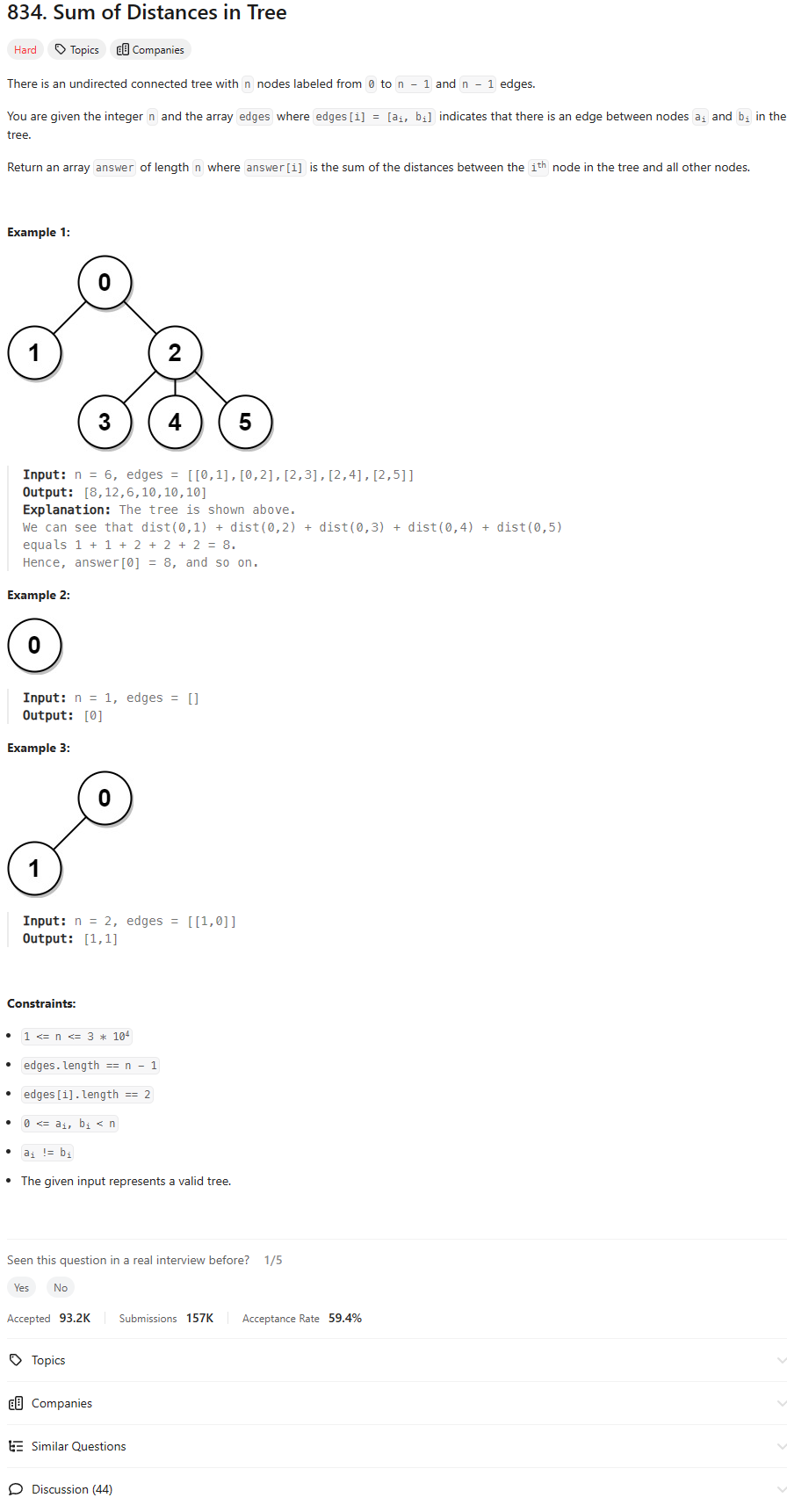Problem of The Day: Sum of Distances in Tree
Problem Statement

Notes:
- Need to review this problem again.
BFS Approach - TLE
class Solution:
def sumOfDistancesInTree(self, n: int, edges: List[List[int]]) -> List[int]:
graph = {i: [] for i in range(n)}
for a,b in edges:
graph[a].append(b)
graph[b].append(a)
def bfs(i):
queue = deque()
queue.append([i, 0])
visited = {i}
total_dist = 0
while queue:
node, dist = queue.popleft()
total_dist += dist
for nei in graph[node]:
if nei not in visited:
queue.append([nei, dist + 1])
visited.add(nei)
return total_dist
res = []
for i in range(n):
res.append(bfs(i))
return res
Editorial Solution
class Solution(object):
def sumOfDistancesInTree(self, N, edges):
graph = collections.defaultdict(set)
for u, v in edges:
graph[u].add(v)
graph[v].add(u)
count = [1] * N
ans = [0] * N
def dfs(node = 0, parent = None):
for child in graph[node]:
if child != parent:
dfs(child, node)
count[node] += count[child]
ans[node] += ans[child] + count[child]
def dfs2(node = 0, parent = None):
for child in graph[node]:
if child != parent:
ans[child] = ans[node] - count[child] + N - count[child]
dfs2(child, node)
dfs()
dfs2()
return ans
- Time: O(n)
- Space: O(n)